| |
| |
| |
| Presented By Facebook |
| |
| Axios AM |
| By Mike Allen ·Dec 19, 2020 |
| 🧤Happy Saturday! Today's Smart Brevity™ count: 995 words ... 4 minutes. 🇬🇧 Bulletin: Prime Minister Boris Johnson, announcing a Christmas lockdown for London, says the spread of the virus in parts of England is now being driven by a "new variant of the virus" that "may be up to 70% more transmissible." —BBC |
| |
| |
| 1 big thing: Trump's shocking wartime silence |
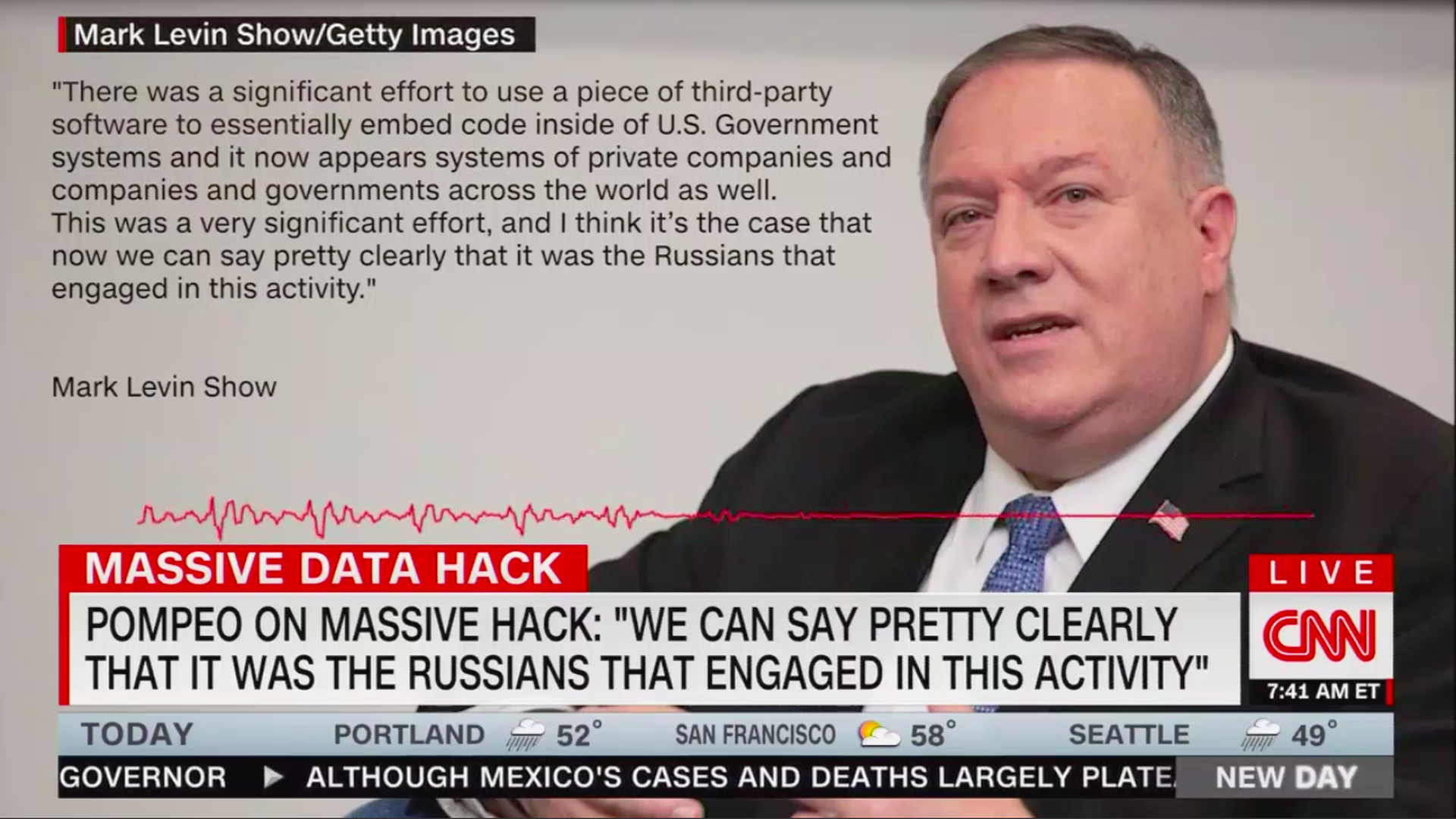 |
|
| Graphic: CNN |
| |
| The U.S. government, and America's largest companies, are scrambling to understand and protect against the "grave risk" to American security from a massive hack that Secretary of State Mike Pompeo now says was a Kremlin op. - President Trump's response: total silence.
Why it matters: My conversations with people across government show we've seen the mere tip of this international intrusion — a stunning, dangerous breach that requires infliction of real pain on the perpetrator, now confirmed as Russia. - Instead, the president of the United States is out of sight, tweeting as recently as this morning — 6 weeks (42 days) after the networks called it — that President-elect Biden "didn't win the Election."
What's new: It's n0w clear it'll take months just to kick these elite hackers out of U.S. networks — let alone discern what they've rifled and captured, AP reports. - The only way to be sure a network is clean is "to burn it down to the ground and rebuild it," said Dmitri Alperovitch, co-founder of the leading cybersecurity firm CrowdStrike. "Cleanup is just phase one."
Experts say the hackers may have been seeking nuclear secrets, blueprints for advanced weaponry, COVID-19 vaccine-related research, and information for dossiers on key government and industry leaders. - Bruce Schneier, security expert and Harvard fellow, said: "We don't know what networks they are in, how deep they are, what access they have, what tools they left."
Late yesterday — five days after the hack was revealed — Pompeo became the first administration official to tie the Kremlin to the security debacle, telling conservative radio host Mark Levin: - "[W]e can say pretty clearly that it was the Russians that engaged in this activity."
A twist: The Russian intelligence service apparently can watch in real time as governments and corporations try to discover and patch the damage. - Jeremy Bash of Beacon Global Strategies — former Pentagon and CIA chief of staff — said on MSNBC that the hackers "poisoned our own medicine."
- Bash told Andrea Mitchell: "[T]hey're going to be reading the emails of the I.T. and security professionals who're responsible for kicking the Russians out."
Go deeper: Pompeo transcript. |
    |
| |
| |
| 2. How China manipulates truth — at scale |
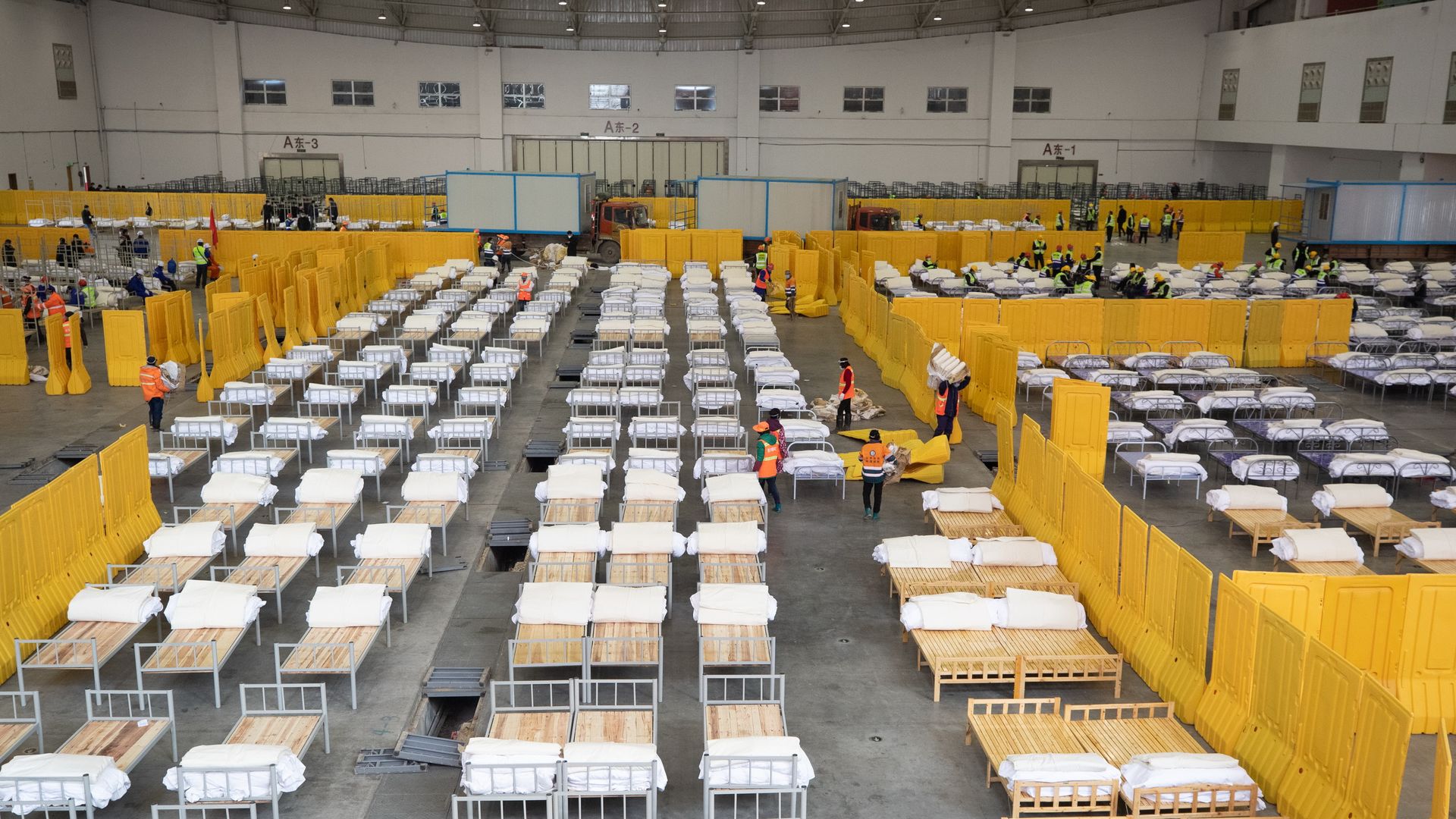 |
|
| In February, with cases rising rapidly, workers set up a makeshift hospital in a Wuhan exhibition center. Photo: Costfoto/Barcroft Media via Getty Images |
| |
| China quickly, systematically and relentlessly suppressed the truth about the coronavirus from its citizens and the world, according to an amazingly detailed investigation by The New York Times (subscription) and Pro Publica. - Why it matters: China is America's chief rival for world dominance — and routinely uses government-directed propaganda, lies and heavy-handed silencing to get an edge over its people and rivals.
The investigation shows China: - Ordered media not to alert the news that a doctor, after sounding the alarm about the deadly coronavirus, had died of it.
- Ordered social media to downplay or erase the news.
- Ordered up other social media chatter to distract people.
- Deployed security forces to silence voices not authorized by the central government.
Read the full story here (free). It's worthy. |
    |
| |
| |
| 3. Cell-grown meat moves out of the lab |
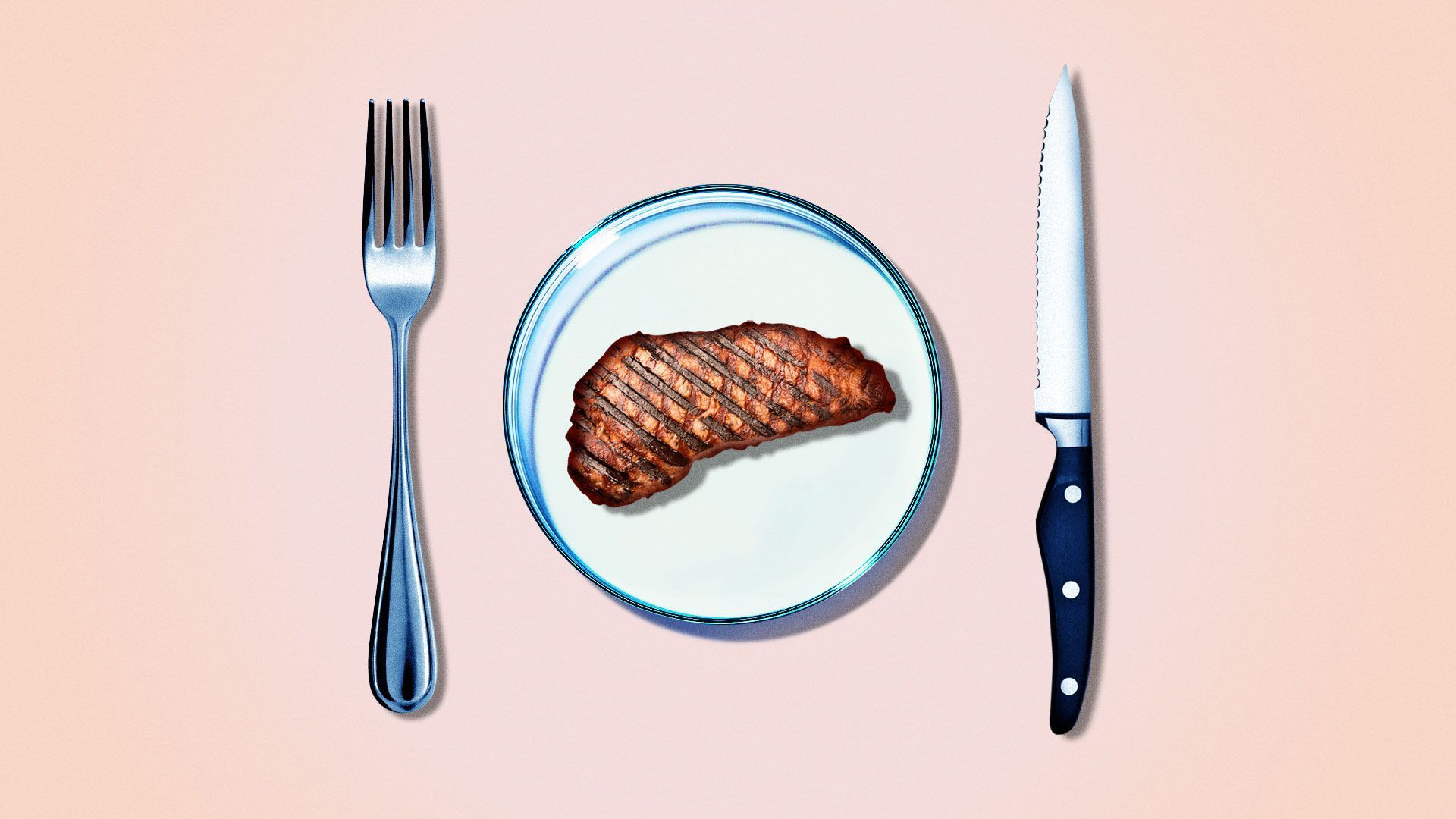 |
|
| Illustration: Eniola Odetunde/Axios |
| |
| Engineered food is getting an overhaul with new technologies focused on cells, Bryan Walsh writes in Axios Future. - Why it matters: Meat and fish grown from cells would mean a more sustainable food supply. But they face scientific, regulatory and consumer hurdles.
The case for cultured animal protein rests on two pillars: reducing animal cruelty and taking pressure off the planet. - The San Francisco startup Eat Just this week made the first commercial sale of a cultured chicken product — to a restaurant in Singapore, the first government to approve cultured meat for human consumption.
- Eat Just is one of a number of startups that produces animal protein not by slaughtering animals, or using plant-based ingredients that mimic the taste of meat, but by growing animal cells.
Winston Churchill predicted in 1931 that within 50 years "we shall escape the absurdity of growing a whole chicken in order to eat the breast or wing, by growing these parts separately under a suitable medium." There are at least 60 cell-based meat startups around the world, according to the consultancy Lux Research. VC funding for the sector hit $314 million in 2020 — more than 100 times greater than when Post made his burger in 2013. |
    |
| |
| |
| A message from Facebook |
| Facebook supports updated internet regulations |
| |
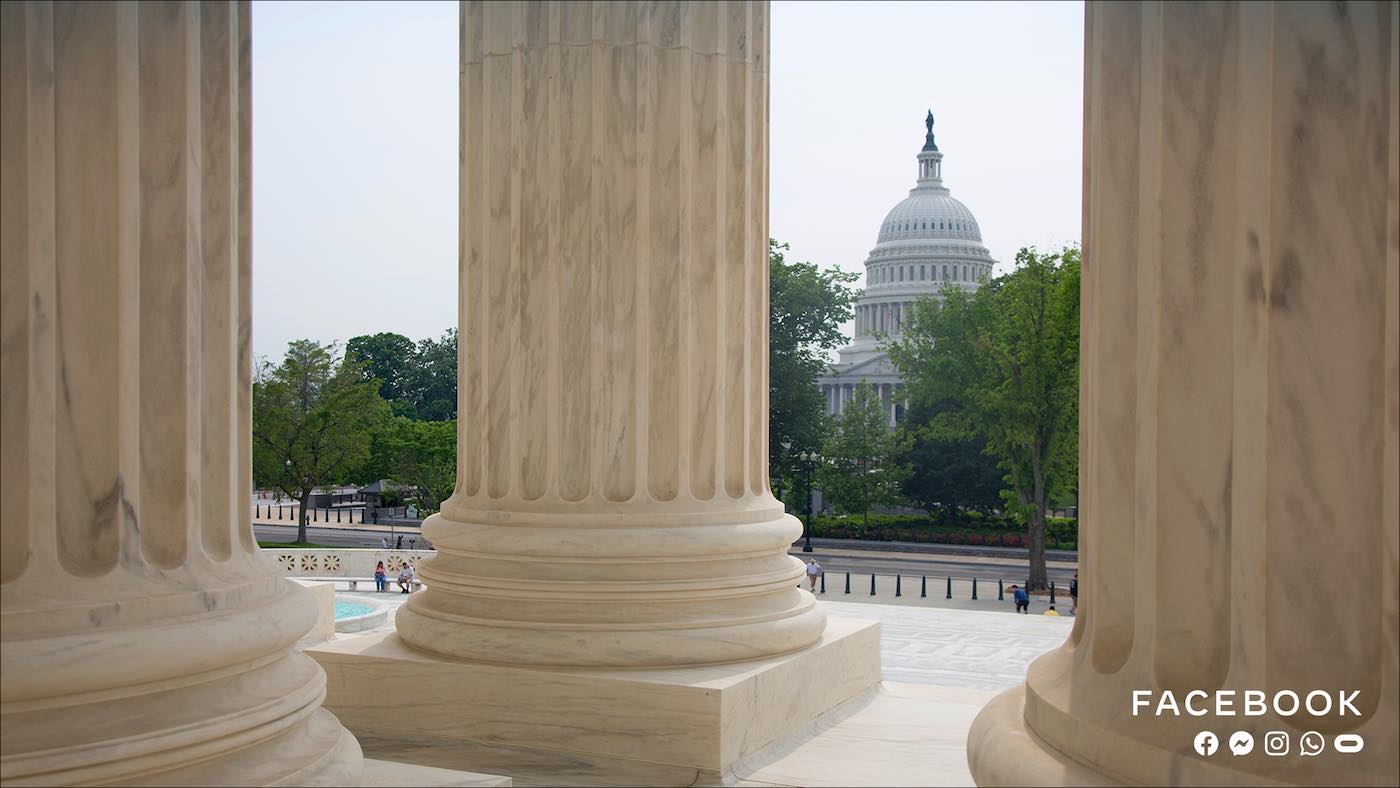 |
| |
We support updated internet regulations to set clear rules for today's toughest challenges and hold companies, including Facebook, accountable for: - Combating foreign election interference.
- Protecting people's privacy.
- Enabling safe and easy data portability between platforms.
Read more |
| |
| |
| 4. 📷 COVID America: Car queues for free gift cards |
| Photo: Joe Raedle/Getty Images Floridians wait in line yesterday to receive one of 5,000 grocery gift cards ($250 each), being given out by the City of Hialeah (Miami-Dade County). - Zoom in on the red car down front for some holiday heart.
|
    |
| |
| |
| 5. County-by-county map of COVID deaths |
| Source: Johns Hopkins. Graphic: Phil Holm, Nicky Forster/AP Interactive version, letting you hover for individual county data. (Scroll down past top pic.) |
    |
| |
| |
| 6. 🏈 1 smile to go: College football plays 500+ games |
| The Oregon Ducks celebrate last night after holding off the No. 13 USC Trojans, 31-24, at L.A. Memorial Coliseum. Photo: Kirby Lee/USA Today Sports via Reuters On fall Saturdays, I've found it comforting to see college football on multiple networks: Even with vastly reduced fans in the stands, it's a slice of normality and even joy for a swath of America's future leaders. On this final weekend of the regular season, if no other games are called off, 541 games will have been played since Labor Day weekend, AP's Ralph Russo writes: - 86.8% of the major college football season will be completed if no games are canceled today, per college football researcher and statistician Cody Kellner.
- Since Power Five conferences set revised schedules in late August, 118 games were either postponed or canceled directly because of COVID.
The SEC will have completed 68 of 70 regular-season games and a title game — the highest success rate among the Power Five. - The Pac-12 fared worst in the Power Five, with its teams playing 32 games of the 42 it hoped to complete when the conference started in early November.
Here's the Power Five by % of conference season completed, assuming remaining games are played today, according to AP research: - SEC: 97% (68 of 70).
- Big 12: 94.5% (52 of 55).
- ACC: 93% (85 of 90).
- Big Ten: 79% (50 of 63).
- Pac-12: 74% (31 of 42).
Group of Five, by % of conference regular-season games completed: - Sun Belt: 97.5% (39 of 40).
- American Athletic Conference: 89% (39 of 44).
- Mid-American Conference: 86% (31 of 36).
- Mountain West: 78% (36 of 46).
- Conference USA: 67% (35 of 52).
|
    |
| |
| |
| A message from Facebook |
| It's time for updated regulations to improve privacy standards |
| |
 |
| |
| We continue to take action to build privacy into our products and give people the tools to help manage their privacy like Privacy Checkup and Off-Facebook Activity. But there's more to do. We support updated internet regulations to improve privacy standards. Read more |
| |
| 📬 Thanks for starting your weekend with us. Please invite your friends to sign up for Axios AM/PM. |








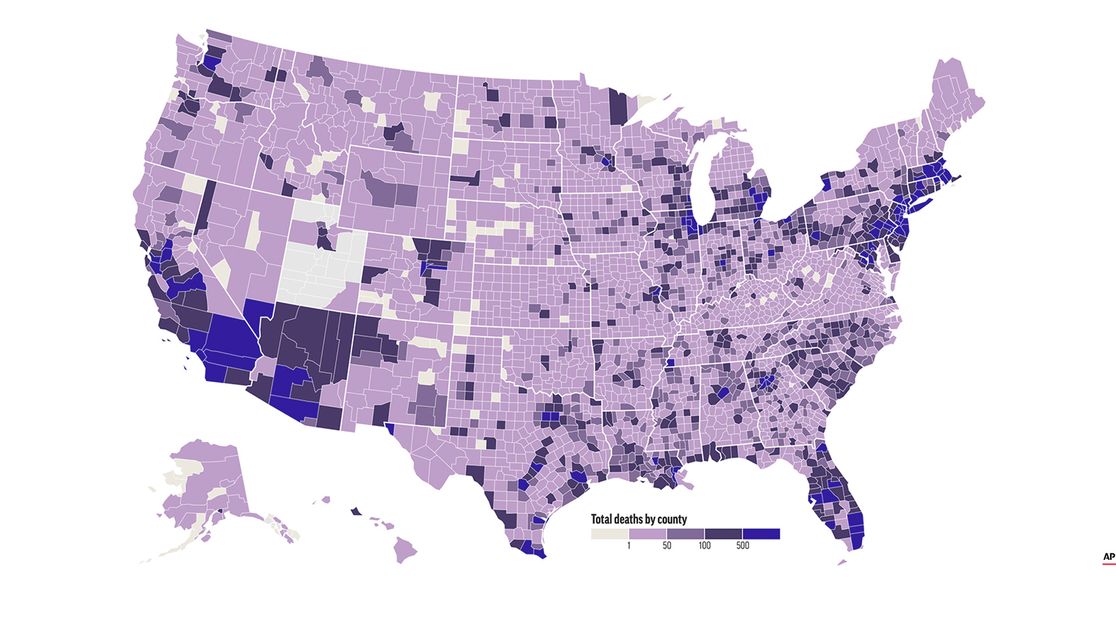

No comments:
Post a Comment